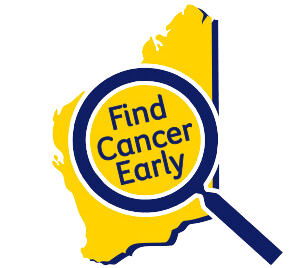Early diagnosis can be achieved by recognising symptoms that may be caused by cancer as early as possible and being assessed, diagnosed, and if necessary, treated without delay. The best way to do this is by being aware of what is normal for your body, and seeking medical advice right away when you notice something unusual.
All adults are encouraged to be aware of common symptoms of the five most common cancers in Australia (lung, prostate, breast, bowel, and skin cancer).
Having these symptoms does not mean you have cancer, but it is important to tell your doctor if you have any of the following:
Coughing up blood
Blood when you cough, no matter what colour it is or how much, should always be examined by a doctor. It may be nothing to worry about, but it could be a symptom of lung cancer.
Blood in your poo
The most common cause of blood in your poo is piles (haemorrhoids), which are caused by straining when going to the toilet. However, blood in your poo could be a symptom of bowel cancer.
Blood in your pee
The most common causes of blood in your pee are urinary tract or bladder infections, but it could be a symptom of a more serious condition like prostate or bladder cancer.
Or, if you have any of the following for more than four weeks:
Problem when peeing
Problems can include pain when peeing, being unable to start peeing when you need to go, or needing to go more than usual. Older men may experience these issues due to a common medical condition that causes the prostate gland to grow too large (benign prostate hyperplasia or BPH). However, it is important to know that these could be a symptom of prostate cancer.
Diarrhoea
Runny or loose poo (diarrhoea) is commonly caused by gastro, food poisoning, or dietary effects. It usually goes away in a few days. If you notice changes in your bowel habits (including constipation or a change in how often you poo) lasting more than four weeks, it is a good idea to see a doctor. This could be a symptom of bowel cancer.
Unexplained weight loss
Small weight changes over time are normal. However, a noticeable loss of body weight that has continued for over four weeks without dieting or increasing physical activity should be looked at by a doctor. Unexplained weight loss may be a symptom of several different cancers.
Unusual lump or swelling anywhere on your body
It is normal to have swelling or a lump after an injury happens to an area of the body, that goes away after some time. However, any unexplainable lump or swelling, or a lump or swelling that lasts more than 4 weeks should be looked at by your doctor. The lump could be benign (non-cancerous), but it could be a symptom of several different cancers (including breast cancer).
Shortness of breath
It is normal to feel out of breath every now and then, and people often attribute it to getting older, being unfit, or having excess body weight. However, if you notice that you’re feeling breathless more than usual, or most of the time, this should be checked by your doctor. Shortness of breath could be a symptom of lung cancer.
A persistent cough
Coughing is a common symptom of allergies, cold, flu, or COVID-19. It often clears up after a week or so. If a cough lasts for longer than four weeks, it is important that you tell your doctor. Any persistent cough should be assessed, especially if you currently smoke or have smoked in the past.
A new or changed spot on the skin
You should see a doctor as soon as possible if you notice a spot or freckle that is new, crusty, not healing, red or pale in colour, or a mole that has changed in colour, thickness or shape. This may be a skin cancer.
You can learn more about the different types of cancer and their symptoms here
Find Cancer Early is a campaign aimed at people living in regional WA.
It promotes the important message that ‘the earlier cancer is found, the greater the chance of successful treatment’. It encourages people to be aware of changes in their body and to see their doctor, clinic nurse or Aboriginal health worker straight away.

Find Cancer Early is a campaign aimed at people living in regional WA. It promotes the important message that ‘the earlier cancer is found, the greater the chance of successful treatment’ and encourages people to be aware of changes in their body and to see their doctor, clinic nurse or Aboriginal health worker straight away.
